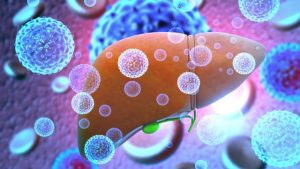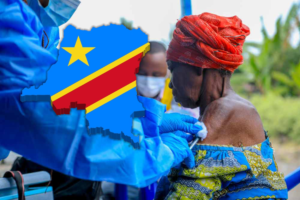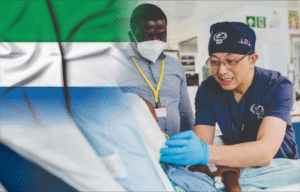WHO Announces that Hepatitis D is a Cancer-Causing Virus, Calls for Urgent Global Response
The World Health Organization (WHO) has issued a renewed call to governments and health partners to intensify efforts to eliminate viral hepatitis, following the reclassification of hepatitis D as a cancer-causing virus.
The appeal coincides with global observances marking World Hepatitis Day.

The International Agency for Research on Cancer (IARC), a specialized arm of WHO, recently confirmed that hepatitis D, which only affects individuals already infected with hepatitis B carries a two-to six-fold higher risk of liver cancer than hepatitis B alone. As a result, hepatitis D is now placed in the same carcinogenic category as hepatitis B and C.
WHO described the reclassification as a critical milestone in the global fight against hepatitis, highlighting the urgent need for increased public awareness, expanded screening efforts, and wider access to treatment.
Dr. Meg Doherty, WHO’s incoming Director of Science for Health, noted that the organization is closely tracking clinical outcomes from emerging treatments for hepatitis D, stressing the importance of rapid innovation and equitable access in the global response.
While Hepatitis C can now be cured within two to three months using oral antiviral medications, and Hepatitis B effectively managed with lifelong therapy, treatment options for Hepatitis D remain limited. Dr. Doherty emphasized that the full potential of emerging treatments can only be realized through a rapid expansion of key health services such as vaccination, testing, harm reduction, and continuous access to care all integrated within national health systems.
Hepatitis viruses A, B, C, D, and E are known to cause acute liver infections. However, only Hepatitis B, C, and D lead to chronic conditions that may progress to cirrhosis, liver failure, or cancer. According to the World Health Organization (WHO), more than 300 million people worldwide are currently living with chronic Hepatitis B, C, or D. These infections are responsible for over 1.3 million deaths each year, mostly due to liver cancer or cirrhosis-related complications.
“Every 30 seconds, someone dies from hepatitis-related liver disease or liver cancer. Yet we have the tools to prevent these deaths,” said WHO Director-General Dr. Tedros Adhanom Ghebreyesus.
Despite some progress, WHO’s latest Global Hepatitis Report highlights critical gaps. By 2022, only 13% of people with Hepatitis B and 36% with Hepatitis C had been diagnosed. Treatment access was even lower, just 3% for Hepatitis B and 20% for Hepatitis C, falling significantly short of WHO’s 2025 goals of diagnosing 60% of cases and treating 50%.
Meanwhile, medical professionals in Abuja have raised concerns over the dangers of untreated hepatitis, calling it a “silent killer” that often shows no symptoms until severe liver damage occurs. Their warning came during a World Hepatitis Day outreach in Dutse, Abuja, organized by the FCT chapter of the Guild of Medical Laboratory Directors, where free Hepatitis B and C screenings were provided to the public.
At the event, Emmanuel Chijoke, Medical Director of Lyon Medical Diagnostic Laboratory, stressed the urgency of early detection. He noted that although a vaccine exists for Hepatitis B, many Nigerians remain untested and unvaccinated, increasing their risk of liver complications.
Zeynab Adekanyi, a Medical Laboratory Scientist and Director of Ayaz Laboratory, echoed these concerns. “The earlier you know, the better,” she said. “Waiting too long can cost you your life. But if caught early, hepatitis is manageable. Prevention through hygiene and vaccination remains our strongest line of defence.”









